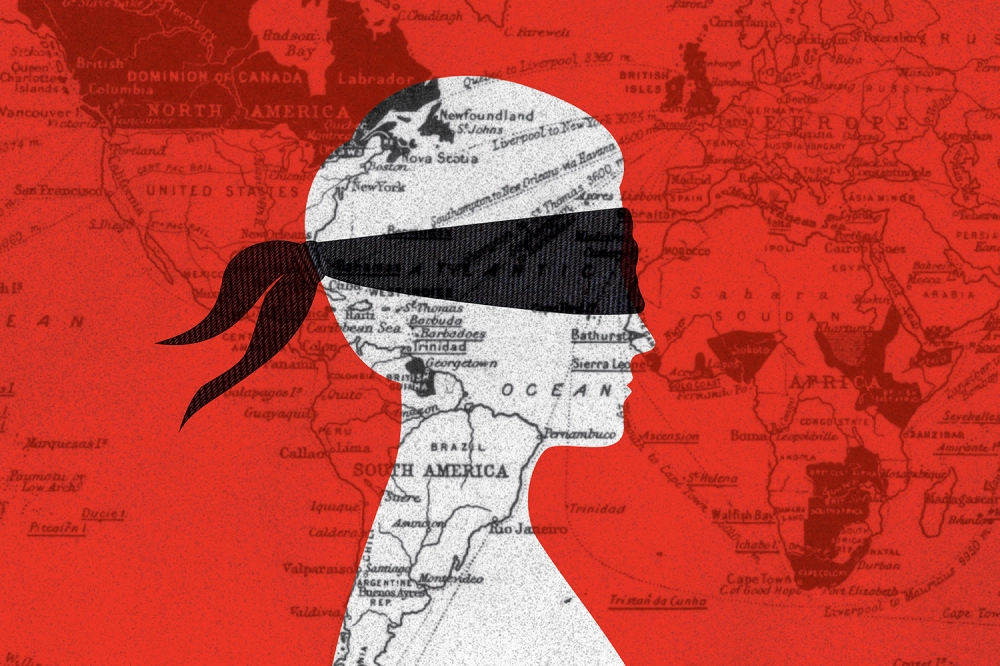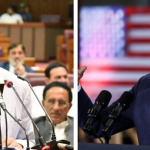Although we have come far ahead from the Cold War period of the International system, its influence of it still prevails in contemporary times, nonetheless.
The two fundamental actors in today’s international political world order are China and United States. Yet again, the very staunch post-colonial angle continues to dominate and what is that? It’s simple, people whom you do not understand, their ideologies, principles, race, and even cultures that do not fit your understanding are inadmissible, intolerable, and obnoxious. Simply because they don’t fit your defined world order.

We have witnessed a very recent example of the Afghan War. The war prevailed for good 2 decades and ended up in a withdrawal. In the Afghan war on terror a terrorist portfolio was defined as anybody wearing shalwar kameez supporting a beard as young as a teenager, is entitled a terrorist. And ultimately they linger on to be the targets of US drone strikes in the US-Afghan war. These flawed definitions resulted in a catastrophe.
At present, in the Russia Ukraine war, whoever does not support the Western angle or the Western perception of Russia Ukraine war (Which is not supporting the Western-imposed sanctions on Russia) is deemed to be from the ‘other camp’. Simply because you do not surrender to their understanding of the war. In the same way, anybody who is the part of BRI project belongs to the ‘Chinese camp’.
Also Read: The Cold War;A Timeline of Events between US and Soviet Union
So What Is Pakistan’s Message Amidst the World Anarchy?
Pakistan’s neutrality towards Russia Ukraine conflict and abstaining from voting on the UNGA agenda of withdrawal of Russia from Ukraine (which essentially was a way to further polarize the world) is a clear indication of not vouching in the ‘bloc politics’. Partly because Pakistan realized that being in a Western camp for a good long time really didn’t help it in any way. With an end result of either being thrown into the Pressler amendments or being told outright that the United States does not need Pakistan because it has now a much bigger partnership with India.
America, the West, are free to do anything, free to decide anything as long as it fits into their idea of national interest. They are free to choose their allies and partners in the need of hours and free to abandon them as per the status quo. A hegemon fashion, indeed.
The ever-changing circumstances allowed and even forced Pakistan to diversify its avenues of friendship, and cooperation at a global level and not just with America alone. Pakistan has been reaching out to evolve with Russia over mutual cooperation and friendly terms over the past six to seven years. Now when we are close to the successful outcome of it, West decides to dictate us, our side of belonging, that too by forcing us? Without any reasonable, credible incentive? Well, one can say that is the evident revival of the hardcore post-colonial mindset. The mindset we thought was dead and buried with a committed lesson to the memory of the unwelcomed aftermath.

And it’s not only Pakistan’s but a grave concern of almost all the developing or under developing countries, the ‘bloc politics’. When the conflict arises among the two great powers or two blocs, it’s the under developing states that suffer the consequences. The unstable economies and the lurching development rate can impact the undeveloped countries for a prolonged period of time.
Cooperating with developing/underdeveloping states requires a different angle aside from camp politics. Polarizing a world into bloc politics which is already polarized, is not the solution to resolve any conflict. Instead opting for diplomatic solutions will be a lot more helpful rather than going for further polarization or military might power show.
States may be underdeveloped, and can no longer surrender to a hegemon or even great powers to decide their political or social issues. This Hobbesian worldview cannot prevail in the 21st century.
Where Does The US – WEST Ties Stand Today?
The West’s understanding of a firm commitment involves European Union and NATO to ensure the sovereignty of all European/states. But what needs to be understood is that the West is diverse, beholding diverse attitudes. American and European powers tell apart when it comes to defining their interests, their attitudes, and their understanding of the war and the emerging crisis of any sort. When it comes to Russia and Ukraine war or even confrontations, it’s the West that is directly impacted not America. To counter China’s takeover globally, sure, waning Russia away can be used as leverage. But no more than that.
However, the West is reliant on Russia. Whatever happens between Russia and Ukraine will somehow rule the roost for the Europeans. To tackle Ukrainian refugees emerging from the crisis is a great deal for European powers, on the realistic grounds nobody wants that in the first place. The scenario we have now in Russia Ukraine crisis is very much similar to that of world war I or world war II, the precisely similar non-parallel lines and interdependence are in existence even to date.

The wars over resources, geography (territorial boundaries), and the economy (trade ties) still do exist in the former colonies. This does not solely exist in Europe but worldwide. The great powers try to drag the other developing or under developing states such as Pakistan or India; to agree to their terms and understanding of war and choose a side that two of their choosing, reveal different hidden aspects behind.
One needs to understand that participating in the sanction warfare against Russia is pointless and wouldn’t help change the Russian attitude towards the crisis. West’s reliance on Russian gas and oil can impact Moscow but how will West replace it with any other energy-providing sector is the real question. And even if the West does replace the Russian oil and gas supplies, the cost would be so high that it will have more dire impacts on the European powers than the levied sanctions affecting Russia.
Also Read: THE NEW ECONOMIC WORLD ORDER
When all is said and done, Understanding and adopting diplomatic solutions to emerging crises is the only way forward. It’s time to put an end to this 16th-century Hobbesian approach. This colonial mindset to push other state members to your liking and your choosing in desperate times shall be discontinued by upholding the sovereignty in true meanings. For the sake of peace, accomplishing the climate of freedom.






